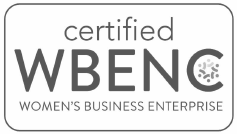If we’ve said it once, we’ve said it a million times – whenever possible, let data inform the strategy. Whether it’s quantifiable metrics on email open rates, social shares and engagement, blog readership, website referral traffic or other data, these numbers can help to prioritize marketing resources and identify the content and messaging that resonates most with your target audiences.
While this data plays an important role in honing a marketing strategy, another critically important piece of data companies and causes should be collecting is client feedback surveys. Whether you collect data on an annual or quarterly basis, distribute surveys to apply to your entire audience or segment your lists for more niche surveys, there is a wealth of valuable data to be gleaned. Here are some of the most important insights you can glean from conducting client surveys:
1) Client surveys can help hone communications strategies
While you don’t want to be the company or cause that over-communicates, flooding stakeholder’s inboxes with news and announcements on a too frequent basis, you also don’t want to be an organization that under-communicates. Lack of consistent communication can lead to knowledge gaps regarding products and services, compromise client and donor retention, and pave the way for competing organizations to increase their market share. Something as simple as a three-to-five question electronic survey can determine how often and through what channels clients want to be communicated with. It can also help to inform your content strategy.
2) Hear what information matters most to your stakeholders…directly from them!
Wondering whether your email marketing should lead with company news or industry expertise? Curious if your LinkedIn content strategy is meeting the needs of those it is reaching? Unsure what new content you should be adding to your website? A clear and concise stakeholder survey can help to gather a list of the types of content your audiences are craving and lay the foundation for creating a content hierarchy. Remember, quality always trumps quantity!
3) Find out where you excel – and where you can improve
There’s nothing better than a glowing review from a client who commends your team on a job well-done and an experience that exceeded their expectations. And, while those positive accolades can help to keep a team motivated, knowing where an organization’s shortcomings lie is really important. Whether you ask clients to rate your performance in a handful of key areas, ask what you aren’t doing that they would like you to be doing, or provide an opportunity to share candid commentary through open response questions, a strong client survey provides a mechanism for collecting well-rounded feedback. A helpful tip: offer clients an opportunity to provide their contact information if they would like someone to follow-up with them directly regarding their feedback. This goes a long-way in demonstrating how much your organization values its stakeholders.
4) Benchmark your organization against the competition
While one never wants to focus the lion’s share of their resources on chasing the competition, having competitive awareness is key to success. If you are concerned that a competing organization may be more strongly associated with providing a particular service, is being confused with your organization, or is growing its market share exponentially, surveys can help to gather insights as to how clients perceive the situation. Something as simple as asking respondents to rate how strongly they associate specific services with specific organizations can help to separate perception from reality.
5) Hear what makes your stand-out from those who chose to work with/support you
It’s no secret that businesses and nonprofits invest a lot of time and resources in crafting the right message. Not too salesy, just personal enough, consultative, creative, strategic…and the list goes on. But, ask yourself, if you turned the tables, and you asked your client to describe who you are, what you do and why it matters, what would they say?
While client surveys should not be mistaken for homework assignments, short and simple questions such as (1) what is the number one term you would use to describe the service you receive from us?; (2) why did you decide to work with us?; and (3) why do you continue to work with us? can help to hone the messages you are sharing with prospective clients to ensure you are meeting their expectations/needs.
Client surveys demonstrate that companies and causes value their stakeholders opinions and insights, are committed to meeting clients’ needs, and are invested in delivering brand experiences that meet – and, when possible, exceed – expectations. Whether this is your first time deploying a client survey or it is part of your annual research and communications routines, focus on asking high value questions that will equip you with insights to hone your sales, marketing and communications strategies in order to increase market share and clearly set your organization apart from its competition.


